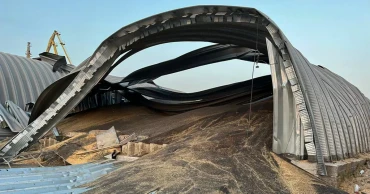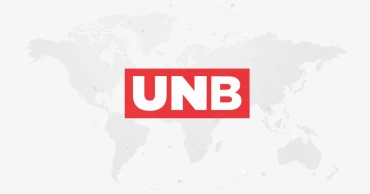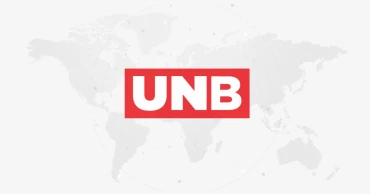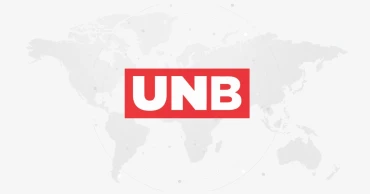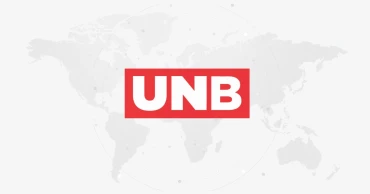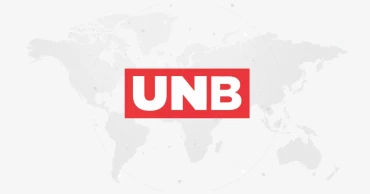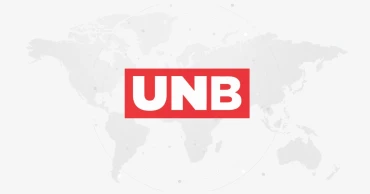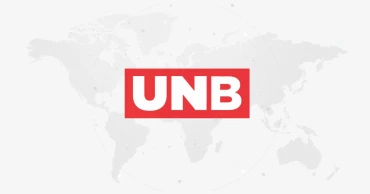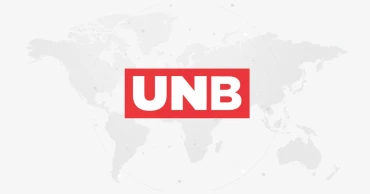Kyiv
Russian Missile and Drone Strike Injures 20 in Kyiv
At least 20 people were injured in a combined missile and drone attack on Kyiv overnight Tuesday, according to Ukrainian authorities, marking the latest in a series of intensified Russian assaults on the capital.
The strike coincided with the ongoing Group of Seven (G7) summit in Canada, which Ukrainian President Volodymyr Zelenskyy is attending. The summit, hosted by Canada as this year’s G7 chair, is scheduled to conclude Tuesday.
Kyiv Mayor Vitalii Klitschko reported that nine people were injured in the Sviatoshynskyi district, while 11 others were wounded in the Solomianskyi district. Six of the victims required hospitalization. Fires also broke out in two additional districts after debris from intercepted missiles fell, officials said.
Zelenskyy, invited to the G7 summit by Canada, is expected to hold bilateral meetings with several world leaders during his visit. He was also scheduled to meet U.S. President Donald Trump, though the White House later confirmed Trump would cut his trip short and return to Washington amid rising tensions in the Middle East.
Russia returns bodies of 1,200 Ukrainian soldiers under Istanbul agreement
Russia has ramped up its aerial bombardments in recent weeks, launching a record number of drones and missiles. The escalation follows a bold operation by Ukraine’s Security Service, which reportedly targeted Russian warplanes stationed at air bases deep within Russian territory.
Meanwhile, diplomatic efforts to end the conflict have seen little advancement. President Zelenskyy noted that direct negotiations in Istanbul have so far yielded only limited outcomes, with a prisoner swap expected to be finalized next week being one of the few tangible results.
8 months ago
Russia hits Ukrainian grain depots again as a foreign ship tries out Kyiv's new Black Sea corridor
KYIV, Ukraine,Aug 16(AP/UNB) Russia resumed its targeting of grain infrastructure in Ukraine's southern Odesa region, local officials said Wednesday, using drones in overnight strikes on storage facilities and ports along the Danube River that Kyiv has increasingly used for grain transport to Europe after Moscow broke off a key wartime export deal through the Black Sea.
Read also:Ukraine accuses Russia of targeting rescue workers with consecutive missile strikes
At the same time, a loaded container ship stuck at the port of Odesa since Russia's full-scale invasion more than 17 months ago set sail and was heading through the Black Sea to the Bosporus along a temporary corridor established by Ukraine for merchant shipping.
Read also:Russia promises retaliation after Ukrainian drones hit a Russian tanker in 2nd sea attack in a day
Ukraine's economy, crunched by the war, is heavily dependent on farming. Its agricultural exports, like those of Russia, are also crucial for world supplies of wheat, barley, sunflower oil and other food that developing nations rely on.
Read also:US to send $200 million in military aid to Ukraine
After the Kremlin tore up a month ago an agreement brokered last summer by the U.N. and Turkey to ensure safe Ukraine grain exports through the Black Sea, Kyiv has sought to reroute transport through the Danube and road and rail links into Europe. But transport costs that way are much higher, some European countries have balked at the consequences for local grain prices, and the Danube ports can't handle the same volume as seaports.
Odesa Gov. Oleh Kiper said the primary targets of Russia's overnight drone bombardment were port terminals and grain silos, including at the ports in the Danube delta. Air defenses managed to intercept 13 drones, according to Kiper.
It was the latest attack amid weeks of aerial strikes as Russia has targeted the Danube delta ports, which are only about 15 kilometers (10 miles) from the Romanian border. The Danube is Europe's second-longest river and a key transport route.
Meanwhile, the container ship departing Odesa was the first vessel to set sail since July 16, according to Oleksandr Kubrakov, Ukraine's deputy prime minister. It had been stuck in Odesa since February 2022.
The Hong Kong-flagged Joseph Schulte was traveling down a temporary corridor that Ukraine asked the International Maritime Organization to ratify. The United States has warned that the Russian military is preparing for possible attacks on civilian shipping vessels in the Black Sea.
Sea mines also make the voyage risky, and ship insurance costs are likely to be high for operators. Ukraine told the IMO it would would "provide guarantees of compensation for damage."
Last Sunday, a Russian warship fired warning shots at a Palau-flagged cargo ship in the south Black Sea. According to Russia's Defense Ministry, the Sukru Okan was heading northwards to the Ukrainian Danube River port of Izmail.
Ship-tracking data analyzed by The Associated Press confirmed that the Joseph Schulte was steaming south.
The Joseph Schulte is carrying more than 30,000 tons of cargo, with 2,114 containers, including food products, according to Kubrakov.
He said the corridor will be primarily used to evacuate ships stuck in the Ukrainian ports of Chornomorsk, Odesa and Pivdennyi since the outbreak of war.
On the war's front line, Ukrainian officials claimed another milestone in Kyiv's grinding counteroffensive, with Deputy Defense Minister Hanna Maliar saying troops have retaken a village in the eastern Donetsk region.
The village of Urozhaine is near Staromaiorske, a hamlet that Ukraine also claimed to have recaptured recently. The claims could not be independently verified.
Ukraine appears to be trying to drive a wedge between Russian forces in the south, but it is up against strong defensive lines and is advancing without air support.
Also Wednesday, the Russian military said it shot down three drones over the Kaluga region southwest of Moscow and blamed the attack on Ukraine. No damage or casualties were reported.
2 years ago
Russia launched 'largest drone attack' on Ukrainian capital before Kyiv Day; 1 killed
Ukraine's capital was subjected to the largest drone attack since the start of Russia's war, local officials said, as Kyiv prepared to mark the anniversary of its founding on Sunday (May 28, 2023). At least one person was killed.
Russia launched the "most massive attack" on the city overnight Saturday with Iranian-made Shahed drones, said Serhii Popko, a senior Kyiv military official. The attack lasted more than five hours, with air defense reportedly shooting down more than 40 drones.
A 41-year-old man was killed and a 35-year-old woman was hospitalized when debris fell on a seven-story nonresidential building and started a fire, Kyiv Mayor Vitali Klitschko said.
Ukraine's air force said that Saturday night was also record-breaking in terms of Shahed drone attacks across the country. Of the 54 drones launched, 52 were shot down by air defense systems.
Read more: Russian prime minister says pressure from West is strengthening ties with China
In the northeastern Kharkiv province, regional Gov. Oleh Syniehubov said a 61-year-old woman and a 60-year-old man were killed in two separate shelling attacks.
Kyiv Day marks the anniversary of Kyiv's official founding. The day is usually celebrated with live concerts, street fairs, exhibitions and fireworks. Scaled-back festivities were planned for this year, the city's 1,541st anniversary.
The timing of the drone attacks was likely not coincidental, Ukrainian officials said.
"The history of Ukraine is a long-standing irritant for the insecure Russians," Ukraine's chief presidential aide, Andriy Yermak, said on Telegram.
Read more: The cyber gulag: How Russia tracks, censors and controls its citizens
"Today, the enemy decided to 'congratulate' the people of Kyiv on Kyiv Day with the help of their deadly UAVs (unmanned aerial vehicles)," Popko also wrote on the messaging app.
Local officials in Russia's southern Krasnodar region said that air defense systems destroyed several drones as they approached the Ilsky oil refinery.
Drone attacks against Russian border regions have been a regular occurrence since the start of the invasion in February 2022, with attacks increasing last month. Earlier this month, an oil refinery in Krasnodar was attacked by drones on two straight days.
Read more: Russia fights alleged incursion from Ukraine for 2nd day, reports more drone attacks
2 years ago
Russia launches ‘exceptional’ air attack in Kyiv with drones, missiles
Loud explosions sounded above Kyiv early Tuesday as Russia launched an intense air attack on the capital using a combination of missiles launched from the air, sea and land.
Russia's latest attack on Kyiv was “exceptional in its density — the maximum number of attacking missiles in the shortest period of time,” said Serhii Popko, the head of the Kyiv military administration.
It is the eighth time this month that Russian air raids have targeted the capital, a clear escalation after weeks of lull and ahead of a much-anticipated Ukrainian counter-offensive. It also comes as President Volodymyr Zelenksyy concludes a whirlwind European tour to greet Ukraine's key wartime allies, which spurred an additional tranche of pledged military aid.
Also Read: Zelenskyy's European tour aimed to replenish Ukraine's arsenal and build political support
“According to preliminary information the vast majority of enemy targets in the airspace of Kyiv were detected and destroyed,” said Popko.
Ukraine's Air Force said 18 missiles of various types were launched, including drones, cruise missiles and ballistic missiles. All were intercepted and shot down, said Air Force spokesman Yurii Ihnat.
Six “Kinzhal” aero-ballistic missiles were launched from MiG-31K aircraft, nine cruise missiles from ships in the Black Sea and three land-based S-400 cruise missiles targeted the capital, said Ihnat in a statement on Telegram.
After the first onslaught, Russia also launched Iranian-made Shahed attack drones and conducted aerial reconnaissance, Ihnat said.
Debris fell across several districts in the capital. In the Solomyansky district, causing a fire in a non-residential building. The fire was extinguished.
Debris set cars on fire and fell on the grounds of a zoo, but no losses were reported, said Kyiv Mayor Vitali Klitschko.
2 years ago
EU, Ukraine together on Europe Day, but Kyiv remains outside
For the first time, Ukraine and the European Union are marking Europe Day, that celebration of “peace and unity,” together. Don’t let anyone be fooled too much, though.
European Commission President Ursula von der Leyen, the head of the EU's executive branch, made a special trip to Kyiv on Tuesday to deliver the warm words of common destiny after Ukrainian President Volodymyr Zelenskyy said that his nation would from now on “celebrate Europe Day together with all of free Europe."
More than a year into the war with invading Russia, Ukraine wants to badly join the bloc as an essential part to anchor its future in the Western world. “Europe Day,” when the 27 current members celebrate their bond as one, also shows how far that moment is still off.
Also Read: Putin tells Red Square parade ‘real war’ unleashed on Russia
Next month, it will be one year already since the EU nations granted Ukraine candidate status, lavished the nation with praise, boosted it with aid and military support and sanctioned Kyiv’s enemy Russia with ever more sanctions. Some leaders often dress in the blue and yellow of Ukraine’s national flag and “Slava Ukraini,” which means Glory to Ukraine, ends all so many EU speeches.
Yet, frustration on the Ukraine side is evident, because the beginning of membership negotiations is still out of sight. Weary and hoarse, dressed in army olive-drab, Zelenskyy visited the Netherlands last week with a heartfelt plea for a “positive assessment” to start the talks.
“We do all our best during the war. We do all the reforms what we have to do,” he told the host, one of the original six EU members dating back to 1958.
Time, however, is an extremely flexible concept in the EU, and patience an essential one.
Also Read: Ukraine’s Zelenskyy convinced Putin will face court justice
“I am absolutely impressed by what the president’s team is doing,” Dutch Prime Minister Mark Rutte said, with Zelenskyy standing beside him. “Fighting a war against Russia and at the same time making concrete steps in terms of clearing the way in terms of this whole process towards EU accession.”
Then he fell back on the time-set mechanics of the EU, which foresees the next assessment in about a half-year, in October. All this to a leader who is counting in weeks and months when his nation might be on the road to victory — or ruin.
The best advice, though, is for Ukraine to stay the course.
“A promise has been made and in essence it is now in the hands of Ukraine. The EU cannot postpone things forever,” said Ghent University Professor Hendrik Vos, an expert on EU decision making.
But unexpected things can happen, as suddenly overflowing cereal silos in several eastern EU nations proved early this spring. To help Ukraine export its grain, sunflower and other farm produce after Russia closed off the Black Sea route, the EU lifted trade restrictions to give a free passage through the bloc and hopefully on to needy world markets.
Yet in neighboring nations like Poland, Hungary, Slovakia and Romania, stocks built up, prices plummeted and that extremely vocal and influential group of voters — the EU’s 10 million farmers — started grumbling, indicating that membership promises are about much more than just sentimental shows of support.
“Of course we have solidarity with Ukraine,” said Christine Lambert, the president of the COPA EU farmers union, “but there are also significant economic aspects to this,” adding that “it’s sort of creating a hole in our budget. It will result in problems and farmers can’t bear these problems alone.”
Apart from making sure that France and Germany never go to war again, the founding principles of the EU also included avoiding hunger in the bloc in the wake of World War II. It allowed farming to take on an exceptionally important role in EU policies and even now it takes up almost a third of the EU’s designated budget.
The war and climate change have put EU farmers increasingly in a squeeze and taking in — and on — a nation like Ukraine, which is historically seen as the breadbasket of Europe, would be especially challenging.
Before the war, Ukraine still had a major stake in the global market of wheat, barley, corn and sunflower oil. Farming accounted for more than 40% of exports.
Opening up to such competition strikes fear in the hearts of many farmers, especially if it comes within a few years. Lambert pointed out how EU farmers need to meet tough environmental and social rules, which Ukrainians so far don't have to comply with.
Once Ukraine joins, it will in principle have the whole market of the current 27 nations at its disposal, but it will also need to abide by EU rules. And Vos said that goes right down to the size of chicken battery cages to meet animal welfare standards.
“Farmers will be saying they don’t want unfair competition from big Ukraine chicken farms that don’t have to play by the rules,” Vos said.
And Ukraine will only be able to join if it gets major financial aid from the current members to rebuild its nation and upgrade to EU standards. It will turn many of the EU nations that now get money from EU coffers into net contributors. Little wonder many in the EU push any membership date into the unspecified future yonder.
“Many years. We’ll need that time to see that obligations are satisfied,” Lambert said.
Such considerations from a small group of stakeholders won’t stop the groundswell of history though. In the EU’s successive sweeps of expansion, short-term financial losses never stood in the way in the end.
When the Iberian Peninsula wrested itself free from dictatorship during the 1970s, poor and needy Spain and Portugal were embraced in the EU a decade later despite the cost.
When the Berlin Wall came down and the Soviet Union collapsed in the early 1990s, the EU took in eight eastern nations in 2004, also at a major cost to the existing members.
Each time, talks on nitty gritty issues went on deep into countless nights but eventually compromises were found — more money was given to grumbling members, sometimes long transition times imposed.
Russia's war in Ukraine could well be an equal watershed in EU history.
“At a certain point there is no way back. The groundbreaking decision has been taken. There can be incremental talks about money until the end. But they won’t stop it,” Vos said.
2 years ago
Ukraine: Objects of war become new normal in Kyiv scenery
There are sandbags around the statues and anti-tank obstacles by the side of the streets, trenches in the nearby forests and land mine warnings in the woods. Signs painted on walls point to the nearest shelter, while air raid sirens occasionally wail across the city, which still sometimes comes under missile attack.
But against this backdrop of war, residents of the Ukrainian capital, Kyiv, are living their lives as normally as they can while Russia’s invasion of their country continues into its second year.
Although many fled in the opening stages of the war, residents have gradually returned to their homes as Russian forces were pushed back from north of the city last year, and the conflict became centered mainly in the eastern and southern parts of Ukraine.
Also Read: 5 dead in Ukraine after Russian missile barrage
Shops, restaurants and bars are open — even if customers have to wrap up their evenings early and rush home in time for the 11 p.m. curfew. Nobody pays attention to the angular steel anti-tank hedgehogs by the side of the road, or the occasional pile of sandbags.
2 years ago
Russia claims progress in eastern Ukraine; Kyiv craves tanks
Russia claimed Friday to have captured a village in its intense, monthslong push toward the eastern Ukraine city of Bakhmut, as military analysts cautioned that tanks that may be sent by Kyiv’s Western allies wouldn't be a magic wand in the almost 11-month war.
Russian Defense Ministry spokesman Igor Konashenkov told a regular media briefing that the village of Klishchiivka, nine kilometers (five miles) south of Bakhmut, had been “liberated.”
The claim couldn't be independently verified, and Ukrainian officials made no immediate comment on the claim.
Read more: Deadly missile strike adds to Ukraine war fears in Poland
Taking Klishchiivka would be only a minor breakthrough, but the Kremlin is hungry for good news from the battlefield after months of setbacks.
Bakhmut, on the other hand, would be a bigger prize. It could allow Russia to disrupt Ukrainian supply lines in the east and threaten other Ukrainian-held cities in the surrounding region.
The war has been largely static during the winter months, according to military analysts, except for some hot spots like Bakhmut and nearby Soledar.
The Kremlin’s forces have kept up their long-distance shelling of Ukrainian targets, hitting key infrastructure and civilian areas, while probing Ukrainian defenses in the east.
The Ukrainian presidential office said Friday that at least five civilians were killed over the previous 24 hours, while six others were wounded, as Russian forces shelled seven regions in the country’s south and east.
Ukrainian troops repelled Russian attacks near a number of settlements in the eastern Donetsk and Luhansk regions, the Ukrainian General Staff said in a report.
Read more: Russian missiles cross into Poland during strike on Ukraine, killing 2
John Lough, an Associate Fellow in the Russia and Eurasia program at the Chatham House think tank in London, said that the Ukraine battlefield situation is “inconclusive,” with a renewed Russian push expected in the spring.
The war is “quite delicately poised,” he told The Associated Press.
Ukrainian President Volodymyr Zelenskyy has pleaded with Western allies to send tanks that would help punch through Russian lines, and Western countries were discussing that possibility at a meeting in Germany on Friday. The United Kingdom said last week that it would provide Challenger 2 tanks.
Marina Miron, of the Defense Studies Department at King’s College London, said that tanks are useful, but lots of factors need to be taken into account.
Those factors include how many tanks will be sent, what condition they are in, how Ukrainian crews will be trained, when the tanks will be delivered and how the Ukrainians keep them supplied.
Sending tanks is “more of a political gesture” than something that will change the complexion of the war, Miron told the AP.
3 years ago
Lavrov: Ukraine must demilitarize or Russia will do it
Russia’s foreign minister on Tuesday warned anew Ukraine that it must demilitarize, threatening further military action and falsely accusing Kyiv and the West of fueling the war that started with Moscow’s invasion.
Sergey Lavrov said Ukraine must remove any military threat to Russia — otherwise “the Russian army (will) solve the issue.” His comments also reflected persistent unfounded claims by the Kremlin that Ukraine and its Western allies were responsible for the 10-month war, which has killed tens of thousands of people and displaced millions.
Russia launched the war on Feb. 24, alleging a threat to its security and a plot to bring NATO to its doorstep. Lavrov reiterated on Tuesday that the West was feeding the war in Ukraine to weaken Russia, and said that it depends on Kyiv and Washington how long the conflict will last.
“As for the duration of the conflict, the ball is on the side of the (Kyiv) regime and Washington that stands behind its back,” Lavrov told the state Tass news agency. “They may stop senseless resistance at any moment.”
In an apparent reaction, Ukrainian presidential adviser Mykhailo Podolyak tweeted that “Russia needs to face the reality.”
“Neither total mobilization, nor panicky search for ammo, nor secret contracts with Iran, nor Lavrov’s threats will help,” he said. “Ukraine will demilitarize the RF (Russian Federation) to the end, oust the invaders from all occupied territories. Wait for the finale silently…”
A day earlier, Ukraine’s Foreign Minister Dmytro Kuleba told the Associated Press in an interview that his government wants a summit to end the war but that he doesn’t anticipate Russia taking part.
Kuleba said Ukraine wants a “peace” summit within two months with U.N. Secretary-General António Guterres acting as mediator. But he also said that Russia must face a war crimes tribunal before before his country directly talks with Moscow.
Read more: Russia scrubs Mariupol's Ukraine identity, builds on death
Both statements illustrate how complex and difficult any attempts to end the war could be. Ukraine has said in the past that it wouldn’t negotiate with Russia before the full withdrawal of its troops, while Moscow insists its military gains and the 2014 annexation of the Crimean Peninsula cannot be ignored.
Testifying to the hardships of war, families of Ukrainian prisoners of war believed held by Russia on Tuesday said the Christmas holiday season is particularly painful and appealed for more to be done to bring their loves ones back home.
Neither Ukraine nor Russia have revealed the exact numbers of POWs they hold, while hundreds have been released as part of prisoner exchanges. Iryna Latysh’s husband Yevhen was captured exactly 300 days ago, in the early days of the war, and she says Christmas isn’t the same without him.
“We were decorating the Christmas tree together this time last year,” she sobbed. “We put the star together, the decorations.”
U.N. human rights investigators have warned that Ukrainian POWs appear to be facing “systematic” mistreatment — including torture — both when they are captured and when they are transferred into areas controlled by Russian forces or Russia itself.
Meanwhile, fierce fighting continued on Tuesday in the Russia-claimed Donetsk and Luhansk regions that recently have been the scene of the most intense clashes.
Ukraine’s Deputy Defense Minister Hanna Maliar said that Russian forces are trying to encircle the city of Bakhmut in the Donetsk region, but without success. Heavy battles are also underway around the city of Kreminna in the Luhansk region, Luhansk governor Serhiy Haidai said.
In the partially occupied southern Kherson region, Russian forces shelled Ukrainian-held areas 40 times on Monday, wounding one person, Ukrainian authorities said. The city of Kherson itself — which Ukraine retook last month in a major win — was targeted 11 times, said regional administrator Yaroslav Yanushevich.
Since its initial advances at the start of the war 10 months ago, Russia has made few major gains, often pummeling Ukraine’s infrastructure instead and leaving millions without electricity, heating and hot water amid winter conditions.
Lavrov didn’t specify how the Russian army will achieve its goals of demilitarizing and “denazifying” Ukraine — which was Russia’s stated goal when the invasion started in February. The reference to “denazification” comes from Russia’s allegations that the Ukrainian government is heavily influenced by radical nationalist and neo-Nazi groups. The claim is derided by Ukraine and the West.
Lavrov warned further Western support for Ukraine could lead to direct confrontation.
Read more: Russia warns increasing supply of US arms to Ukraine will aggravate war
“We keep warning our adversaries in the West about the dangers of their course to escalate the Ukrainian crisis,” he said, adding that “the risk that the situation could spin out of control remains high.”
“The strategic goal of the U.S. and its NATO allies is to win a victory over Russia on the battlefield to significantly weaken or even destroy our country,” he said.
On Tuesday, Russian President Vladimir Putin signed a decree banning oil exports to countries that support a $60-per-barrel price cap that was declared by the European Union and Group of Seven countries in a bid to reduce Moscow’s revenue during wartime. The ban takes effect in February and will run through July.
The price cap is higher than what Russian oil has sold for in recent weeks, so the potential effects of Putin’s ban are uncertain.
3 years ago
Wartime Ukraine erasing Russian past from public spaces
On the streets of Kyiv, Fyodor Dostoevsky is on the way out. Andy Warhol is on the way in.
Ukraine is accelerating efforts to erase the vestiges of Soviet and Russian influence from its public spaces by pulling down monuments and renaming hundreds of streets to honor its own artists, poets, soldiers, independence leaders and others — including heroes of this year’s war.
Following Moscow’s invasion on Feb. 24 that has killed or injured untold numbers of civilians and soldiers and pummeled buildings and infrastructure, Ukraine's leaders have shifted a campaign that once focused on dismantling its Communist past into one of “de-Russification.”
Streets that honored revolutionary leader Vladimir Lenin or the Bolshevik Revolution were largely already gone; now Russia, not Soviet legacy, is the enemy.
It’s part punishment for crimes meted out by Russia, and part affirmation of a national identity by honoring Ukrainian notables who have been mostly overlooked.
Russia, through the Soviet Union, is seen by many in Ukraine as having stamped its domination of its smaller southwestern neighbor for generations, consigning its artists, poets and military heroes to relative obscurity, compared with more famous Russians.
Read more: Putin in Belarus, eyeing next steps in Ukraine war
If victors write history, as some say, Ukrainians are doing some rewriting of their own — even as their fate hangs in the balance. Their national identity is having what may be an unprecedented surge, in ways large and small.
President Volodymyr Zelenskyy has taken to wearing a black T-shirt that says: “I’m Ukrainian.”
He is among the many Ukrainians who were born speaking Russian as a first language. Now, they shun it — or at least limit their use of it. Ukrainian has traditionally been spoken more in the western part of the country — a region that early on shunned Russian and Soviet imagery.
Large parts of northern, eastern and central Ukraine are making that linguistic change. The eastern city of Dnipro on Friday pulled down a bust of Alexander Pushkin — like Dostoevsky, a giant of 19th century Russian literature. A strap from a crane was unceremoniously looped under the statue's chin.
This month, Kyiv Mayor Vitali Klitschko announced about 30 more streets in the capital will be rechristened.
Volodymyr Prokopiv, deputy head of the Kyiv City Council, said Ukraine's “de-Communization” policy since 2015 had been applied in a “soft” way so as not to offend sensitivities among the country's Russian-speaking and even pro-Moscow population.
“With the war, everything changed. Now the Russian lobby is now powerless – in fact, it doesn’t exist,” Prokopiv said in an interview with The Associated Press in his office overlooking Khreschatik Street, the capital's main thoroughfare. “Renaming these streets is like erasing the propaganda that the Soviet Union imposed on Ukraine.”
During the war, the Russians have also sought to stamp their culture and domination in areas they have occupied.
Andrew Wilson, a professor at University College London, cautioned about "the dangers in rewriting the periods in history where Ukrainians and Russians did cooperate and build things together: I think the whole point about de-imperializing Russian culture should be to specify where we have previously been blind — often in the West.”
Read more: Kyiv targeted in early morning drone attack: Authorities
Wilson noted that the Ukrainians "are taking a pretty broad-brush approach.”
He cited Pushkin, the 19th century Russian writer, who might understandably rankle some Ukrainians.
To them, for example, the Cossacks — a Slavic people in eastern Europe — “mean freedom, whereas Pushkin depicts them as cruel, barbarous, antiquated. And in need of Russian civilization,” said Wilson, whose book "The Ukrainians” was recently published in its fifth edition.
In its program, Kyiv conducted an online survey, and received 280,000 suggestions in a single day, Prokopiv said. Then, an expert group sifted through the responses, and municipal officials and street residents give a final stamp of approval.
Under the “de-Communization” program, about 200 streets were renamed in Kyiv before this year. In 2022 alone, that same number of streets have been renamed and another 100 are scheduled to get renamed soon, Prokopiv said.
A street named for philosopher Friedrich Engels will honor Ukrainian avant-garde poet Bohdan-Ihor Antonych. A boulevard whose name translates as “Friendship of Peoples” — an allusion to the diverse ethnicities under the USSR – will honor Mykola Mikhnovsky, an early proponent of Ukrainian independence.
Another street recognizes the “Heroes of Mariupol” — fighters who held out for months against a devastating Russian campaign in that Sea of Azov port city that eventually fell. A street named for the Russian city of Volgograd is now called Roman Ratushnyi Street in honor of a 24-year-old civic and environmental activist who was killed in the war.
A small street in northern Kyiv still bears Dostoevsky's name but soon will be named for Warhol, the late Pop Art visionary from the United States whose parents had family roots in Slovakia, across Ukraine's western border.
Valeriy Sholomitsky, who has lived on Dostoevsky Street for nearly 40 years, said he could go either way.
“We have under 20 houses here. That’s very few,” Sholomitsky said as he shoveled snow off the street in front of a fading address sign bearing the name of the Russian writer. He said Warhol was “our artist” — with heritage in eastern Europe:
Now, “it will be even better,” he said.
“Maybe it is right that we are changing many streets now, because we used to name them incorrectly,” he added.
3 years ago
Kyiv targeted in early morning drone attack: Authorities
Ukraine's capital was targeted by multiple drones in an attack early Monday, authorities reported, three days after what they described as one of Russia's biggest assaults on Kyiv since the beginning of the war.
The Kyiv city administration said on its Telegram account that more than 20 Iranian-made drones were detected over the capital's air space and at least 15 of them were shot down.
It added that a critical infrastructure point was hit, without giving more details.
Read more: Jewish festival of lights begins in Ukraine as battles rage
Kyiv region Gov. Oleksii Kuleba said on Telegram that some infrastructure facilities were damaged, as well as private houses, and at least two people were injured.
Kyiv Mayor Vitali Klitschko said that explosions were heard in two districts, Shevchenkivskyi and Solomianskyi. He said also on Telegram that there were no immediate casualties reported, and that the emergency services are working in the area.
Although the capital seemed the main target of the latest Russian attack, the armed forces said that other places in the country were also targeted.
Ukraine's air force said on Telegram that they were able to destroy 30 of at least 35 self-explosives drones that Russia launched across the country from the eastern side of the Azov Sea.
Read more: Dead boy pulled from rubble of latest Russian hit on Ukraine
The Ukrainian military has reported increasing success in shooting down missiles and explosive drones.
Russia has been targeting energy infrastructure, including in Kyiv, as part of a strategy to try to freeze Ukrainians.
On Friday, Ukraine’s capital was attacked as part of a massive strike from Russia. Dozens of missiles were launched across the country, triggering widespread power outages.
3 years ago

